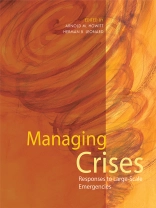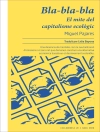From floods to fires, tornadoes to terrorist attacks, governments must respond to a variety of crises and meet reasonable standards of performance. What accounts for governments’ effective responses to unfolding disasters? How should they organize and plan for significant emergencies? With fifteen adapted Kennedy School cases, students experience first-hand a series of large-scale emergencies and come away with a clear sense of the different types of disaster situations governments confront, with each type requiring different planning, resourcing, skill-building, leadership, and execution.
Grappling with the details of flawed responses to the LA Riots or Hurricane Katrina, or with the success of the Incident Management System during the Pentagon fire on 9/11, students start to see the ways in which responders can improve capabilities and more adeptly navigate between technical or operational needs and political considerations.
关于作者
Herman B. Leonard is George F. Baker Jr. Professor of Public Management at the Kennedy School and professor of business administration at Harvard Business School. He teaches leadership, organizational strategy, crisis management, and financial management. His current research concentrates on crisis management, corporate social responsibility, and performance management. He is a member of the boards of directors of Harvard Pilgrim Health Care, of the ACLU of Massachusetts, and of the Hitachi Foundation. He was formerly a member of the board of directors of the Massachusetts Health and Education Facilities Authority and of Civic Investments, a nonprofit organization that assists charitable enterprises with capital financing; a member of the Research and Education Advisory Panel of the General Accounting Office; a member of the Massachusetts Performance Enhancement Commission; and a member of the Alaska Governor’s Council on Economic Policy. He served as Chair of the Massachusetts Governor’s Task Force on Tuition Prepayment Plans.












